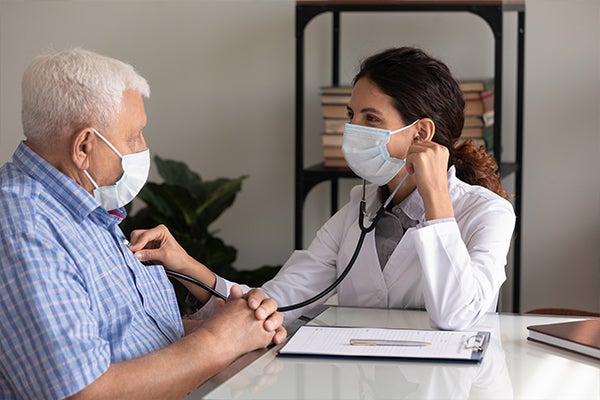Allergies
Seasonal and environmental allergies can be more than just a nuisance. Visit MyCare 365, and we’ll help evaluate, diagnose, treat and manage acute and chronic allergy conditions.
Schedule a Visit

Seasonal and Persistent Allergies
Allergies occur when your body's defense system (immune system) overreacts to certain substances as if they were a harmful virus or germ. Many things including pollens, medicine, food, dust, animal dander and mold can be the cause. Allergies can be mild or severe as well as seasonal or year-round. Mild allergies are typically more a nuisance, causing symptoms such as watery eyes and sneezing. Severe allergies can be life-threatening and lead to asthma attacks and anaphylaxis. Your allergies are seasonal if you have symptoms at certain times of the year. In that case, you are probably allergic to pollens from certain trees, grasses or weeds. Persistent allergies, on the other hand, are often caused by certain foods, medications, pet dander and more.

Allergy Symptoms
Allergy symptoms include:
- Dark circles under the eyes ("allergic shiners")
- Drainage from the nose down the back of the throat (postnasal drip)
- Headache and fatigue
- Hives
- Itchy, watery eyes
- Runny, stuffy or itchy nose
- Shortness of breath or wheezing
- Sneezing
- Snoring
- Sore throat or cough
- Stomach ache, vomitting or diarrhoea
- Swelling of the tongue, eyes, face or lips
- Temporary loss of smell
Allergy Management
Managing your allergies is an important part of staying healthy. Over-the-counter allergy medicine, when taken correctly, may help with some symptoms. Your doctor may suggest that you have blood tests to help determine the cause of your allergies because when you know what allergen is triggering your symptoms, you can often avoid it. In some cases, immunotherapy might help. For this treatment, you receive shots or take medication containing trace amounts of the allergen. Your body "gets used to" the allergen, so you react less over time. This kind of treatment may help prevent or reduce some allergy symptoms.
